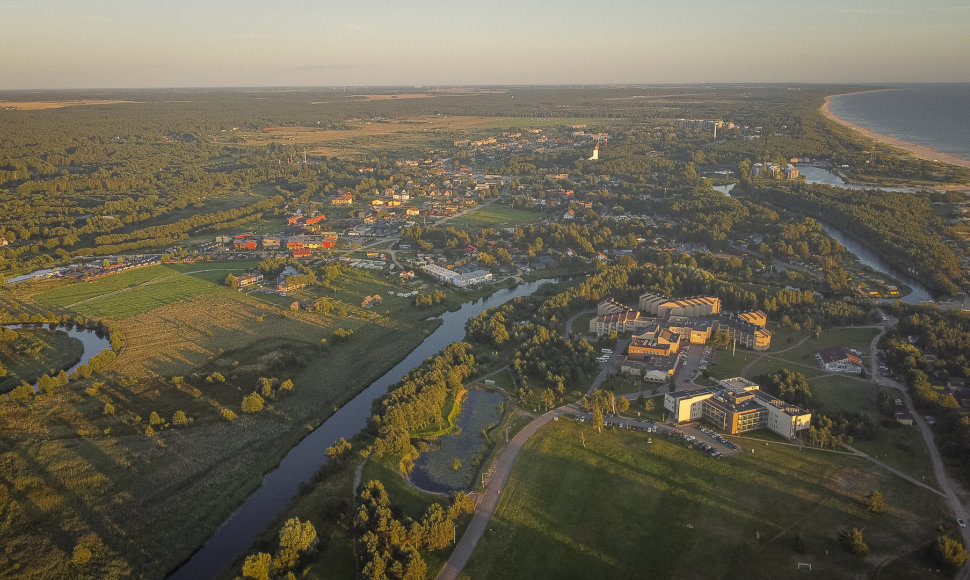“This summer, travel restrictions forced many residents to change their vacation plans. Instead of spending their vacations abroad, many chose to stay at home or decided to vacation in the coastal region of their home country or other resort towns or countryside farmsteads. It appears that the ongoing uncertainty brought about by the pandemic caused people to rethink their future holiday plans. For this reason, more people are starting to think about purchasing a vacation residence since it has turned from a luxury into a necessity.
This could have been the result of the fact that it was difficult to rent a desired vacation place in the costal region during the summer. Many were also deterred by high property rental rates which spiked due to increased demand,” said Julius Dovidonis, CEO of Realco, one of the largest real estate companies in Lithuania.
Strongest interest is among the middle-aged
The survey of Vilnius residents who are considering buying a new home conducted in October by Spinter Tyrimai and commissioned by Realco has shown that middle-aged respondents (aged 46 to 55) made up the largest proportion (37 percent) of those who consider buying a vacation home. For respondents aged 36 to 45, buying a vacation home has also become an important issue with 18 percent of them considering this option. It is interesting to note that as many as 15 percent of the youngest respondents aged 18 to 25 are also considering buying a vacation home.
According to J. Dovidonis, the desire to own a vacation home may have been inspired by the desire to achieve work-life balance more effectively.
“Changes related to the pandemic have led a quarter (26%) of citizens to think about changing or purchasing a new home. Nearly half of them (49%) began thinking about it due to remote work and related changes. Four out of ten respondents (42%) claimed that such plans were a response to travel restrictions and the need for quality vacation time in Lithuania.
In this context, when a pandemic locks people down in their home country, and remote working confines people to their homes, a vacation home can serve not only as a place to rest but also as a great place to work. After all, with remote working, people can freely choose where they will carry out their work. An apartment in the coastal region or a farmstead in the countryside may be an ideal place for that purpose as the only thing you need is an internet connection,” he explains.
In light of the pandemic, the greatest interest in a vacation home was observed among housewives (27%), top-level and middle-level managers (26%) and students (24%).
Want to rest close to nature
Although the pandemic has limited travel abroad, it has not reduced the need for relaxation, even if that means spending holidays in their home country or seeking alternative options.
According to J. Dovidonis, the pandemic has strengthened the recently observed trend of spending vacation in the coastal areas of the country. In this case, owning a private home becomes an option for both a long vacation and a short weekend getaway. Moreover, it allows quality rest all year round.
If we look at the real estate market in the coastal region, we can see that buyer activity, as usual, increased throughout the summer months and peaked in autumn.
According to J. Dovidonis, CEO of the real estate company Realco behind the project Šventosios vartai (Gates of Šventoji), said that the interest in the apartments is still felt after the summer has ended. There has also been a great increase in the visitor traffic to the project’s website. In November, the number of visitors showing interest in the project increased ten times as compared to the same period last year.
J. Dovidonis says he has noticed that people often have location-related requirements when it comes to their vacation home: they want their home to be as close to the beach as possible, in a peaceful area, and to see as much nature and greenery through their windows as possible. Another requirement that has been on the rise recently is the wish to have a fully furnished and decorated home as people are less and less willing to waste their time decorating and furnishing their homes.
“These are picky and rational customers who prioritize a peaceful and cosy environment and want as little hassle as possible when it comes to choosing their vacation property. Our project is geared towards this particular type of customers. For this reason, we are now implementing a unique idea of designing an exemplary apartment using Lithuanian-made products only, with Lithuanian furniture and interior designers contributing to the project,” J. Dovidonis says.
The Šventosios vartai (Gates of Šventoji) residential complex consists of 16 low-rise buildings located near the Baltic Sea and the River Šventoji. The project offers 2 to 5-room apartments with a floor area ranging from 32 to 104 sq. meters.
A survey of a sample of 1,210 residents of Vilnius was conducted on 15–29 October this year by Spinter Tyrimai.












